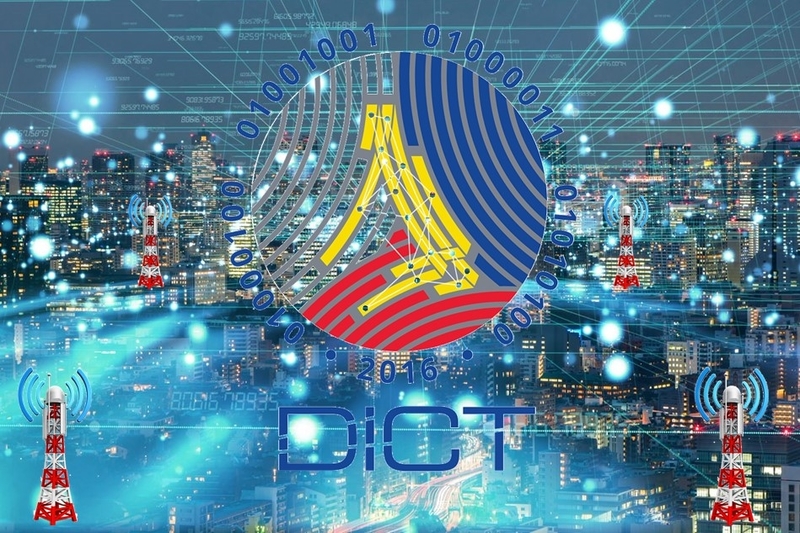
The Department of Information and Communications Technology (DICT) is working with other government agencies to join efforts and initiatives in pursuit of an improved information and communications technology (ICT) infrastructure landscape as the country continues to adapt to the new normal.
The need for an improved ICT infrastructure is still one of the major concerns of the government during this public health emergency as the demand for Internet connectivity surged among businesses, industries, students, workers and the larger public. In view of this, the Department of Information and Communications Technology is focused on promoting faster telecommunications tower buildup through reducing tower permitting requirements.
DICT Secretary Gregorio B. Honasan II said that the inter-agency efforts are initiated with the recognition that ICT infrastructure improvements need to begin with the reduction of bureaucratic red tape that has long interfered with the mission of improving Internet connection in the country. With everyone stepping up, the department hopes to fast-track the buildup of telecommunication towers in support of President Duterte’s directives to fully address the Filipinos connectivity needs.
In July of this year, DICT, Anti-Red Tape Authority (ARTA), along with other concerned agencies released a Joint Memorandum Circular (JMC) which aimed to streamline the process of applications for the requirements, permits, licenses, clearances, certificates, and other necessary documents for Independent Tower Companies (ITCs) and telecommunication companies to construct Shared Passive Telecommunications Tower Infrastructures (PTTI) in line with DICT’s Common Tower Policy.
Shortly thereafter, by the end of August 2020, the Department of Human Settlements and Urban Development (DHSUD), a signatory in the JMC, confirmed that it had updated the guidelines for permit and documentary requirement application for ICT infrastructure projects, including permits to build towers.
These revised guidelines are contained in the DHSUD’s Department Order (DO) No. 2020-009 otherwise known as the “Revised Locational Guidelines for Base Stations and Other Infrastructure for Cellular Mobile Telephone Service, Paging Service, Trunking Service, Wireless Local Loop Service, and Other Wireless Communications Service.”
The provisions would allow telcos and ITCs to streamline the consent of the homeowners’ associations (HOAs), building owners, and concerned tenants’ consent in their application for permits, allowing for an expedited process in keeping with their commitments under the JMC.
Instead, for ICT facilities to be built in privately-owned land within residential subdivisions, the responsible officer of the company can submit a written certification executed under oath that states that there is no other available or suitable site within the coverage area and that the location is the best fit for connectivity purposes. The company should likewise submit an undertaking that promises the conduct of social preparation among the affected homeowners. Other documentary requirements are still in place, however, the Legislative branch has also taken notice of the pressing need for enhanced ICT infrastructure and is looking into possible solutions.
The Senate is also open to the possibility of suspending tower permit requirements for telcos altogether for three (3) years, per the government’s planned supplementary pandemic measure, Bayanihan to Recover as One Act or “Bayanihan 2”. These proposed provisions aim to suspend select tower permits, except the building permit.
Towards these efforts to ease permitting requirements, the Department launched an online portal which can be accessed at https://commontower.gov.ph/ to facilitate the digital application and registration of interested ITCs.
Presently, the DICT has received letters of intent from thirteen (13) additional tower companies who wish to register as ITCs. This was a welcome improvement to the Department’s existing agreements with the twenty-four (24) tower companies, which are mostly foreign-owned.
The Philippines has been aggressively pursuing its digital transformation agenda. The country recently showed that its National Broadband Programme could save the Philippines US$ 15 million in 2021.
More recently, DICT was confident that data could help the government develop evidence-based projects and policies geared towards improving the lives of Filipinos, especially now as the country transitions to a new way of life.
Along the same lines, the Philippine Department of Finance has taken the lead in shielding GFIs and other agencies from cyber threats.
















